The first meeting to discuss organizing a telephone company was held on July 31, 1950, in Bison, South Dakota, with the Grand Electric Board of Directors serving on the committee. The committee spent the next couple of years trying to get area residents to sign up for the telephone service to make the system feasible. West River Cooperative Telephone Company (WRCTC) was officially organized on October 23, 1953. A nine-man Board of Directors governed it. In October 1957, WRCTC awarded bids for constructing a dial telephone system for Bison.
WRCTC purchased the Sorum Telephone Company in 1958. In 1972, Bison, the original exchange, was split into three exchanges: Bison, Meadow, and Sorum. On April 7, 1975, WRCTC purchased Buffalo and Camp Crook from US West. Digital central office switching was installed in Bison from 1985 to 1987. 1987 marked the first fiber optic cable being installed from Bison to Buffalo.
In the early 1980s, cable television systems began to develop in small towns throughout the area. Rather than having an outside company create a cable system for the area, West River Cooperative Telephone Company’s Board of Directors conducted a feasibility study in 1981. The study gave them insight into the interest in Bison for a CATV system and how many members might acquire the service. An application was made to the Town of Bison for a Franchise in September of 1981. Bylaws and Articles of Incorporation for West River Telephone were amended in October 1981 to incorporate the CATV. A motion was made to construct a CATV system in Bison in December of 1981. Martin and Associates out of Mitchell were hired to do the initial design and staking of the system. Thomas Construction built the system. A loan application was submitted to RUS for $1.5 million. Sign-up for members in the Town of Bison began in February 1982 with a potential of 207 subscribers. Although sign-up was low, plans proceeded. FCC approved the permits, crews laid cable in October 1982, and the system was completed in December 1982. West River CATV was organized in 1982, with the original 119 members signed up for service. By December of the same year, it had grown to 135 members connected to West River CATV.
In June 1996, WRCTC purchased the Lemmon, Newell and Nisland Exchanges from US West. Stateline Telecommunications, a wholly-owned subsidiary of WRCTC, operated these exchanges. In 1997 and 1998, host/remote digital central office switching was installed in all West River and Stateline Exchanges. The Bison Central Office switch now served as the host switch for the seven remote switches in Meadow, Sorum, Buffalo, Camp Crook, Lemmon, Newell, and Nisland. Interexchange fiber optic cables were also installed in 1997-1998 to interconnect all West River and Stateline Exchanges and to connect to the South Dakota Network (SDN) at Maurine.
In 2004, West River Cable Television became a wholly-owned subsidiary of West River Cooperative Telephone Company, providing quality cable in Bison, Buffalo, Faith, McIntosh, McLaughlin, Lemmon, Selfridge (ND), and Timber Lake. All of these towns, excluding Bison, were purchased from Midcontinent Communications in August 2004, and operations by WRCATV began on November 17, 2004. The total new subscriber base at the time of the purchase was 1,039.
In July 2005, West River Cable Television purchased from Galaxy, the cable television subscribers in Newell.
In September 2014, West River Cable Television shut down the cable television systems in Timber Lake, McLaughlin, and Selfridge due to a loss of cable television subscribers.
In November 2015, Faith cable television systems were shut down, and in November 2016, McIntosh was also shut down due to the loss of many cable television subscribers.
In 2011, WRCTC completed the Fiber to the Home (FTTH) project, making it possible for every subscriber on our system to acquire high-speed broadband internet. WRCTC is proud to serve the communities of Lemmon, Bison, Buffalo, Newell, Meadow, Sorum, Camp Crook, Nisland, Prairie City, and Reva with phone, long-distance, and internet services. WRCTC serves approximately 3,000 members and offers phone, Internet, and cable television services.

